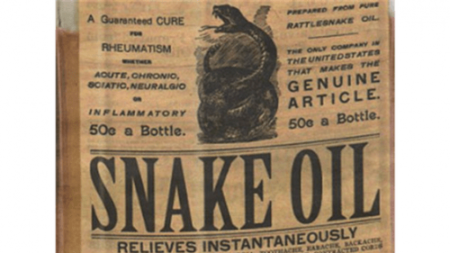CRISPRd acne, fighting bad ads, love for special K, and more
12 Jan 2021
Posted by Andrew Kantor
Giving Covid-19 vaccinations requires two NPI numbers
If you’re providing Covid-19 vaccines, the good folks at NCPA have important information: You’ll need two NPI numbers — one for ordering it (Type 1) and one for getting paid (Type 2).
Read the details and get a link to apply for a Type 1 number here.
ALSO: DPH has a registration site for healthcare providers that are NOT enrolled as a vaccine provider to get a vaccine .)
Cannabis withdrawal is no fun
First came the medical marijuana — now come the studies about the medical marijuana. And one of the latest finds that…
More than half of people who use medical marijuana products to ease pain also experience clusters of multiple withdrawal symptoms when they’re between uses.
And that’s led to a small fraction (10 percent) finding that the in-between symptoms are pretty awful. The study, out of the University of Michigan, was published in the journal Addiction, so you know what the concern is.
When someone experiences more than a few such symptoms, it’s called cannabis withdrawal syndrome — and it can mean a higher risk of developing even more serious issues such as a cannabis use disorder.
Bad ad! No cookie!
The FDA wants to crack down on bad ads — i.e., “potentially false or misleading prescription drug promotion.” And it’s got a free one-hour online CE course to help you spot (and report) them.
Our goal is to educate as many [healthcare providers] as possible about the Bad Ad Program to help ensure that prescription drug promotion is truthful and not misleading. Any effort you make will help!
Don’t want to take the course? You might want to at least check out the “Real-life Case Studies” or the Bad Ad website itself.)

ICYMI … with backsies
When distilleries stepped up and began making hand sanitizer to help with shortages, they certainly didn’t expect to have to shell out $14 grand for the privilege. And yet that’s what happened — the FDA considered them monograph drug manufacturers, and that meant paying a manufacturer facility fee: $14,060.
Cue the outrage.
No worries, though. HHS has stepped in, calling those facility fees “arbitrary,” and telling the FDA to back off. And now it’s official, according to an announcement in the Federal Register.
Twist: In the announcement, HHS says any OTC monograph user fees will now require public notice and opportunity for comment. And those fees are applied every year….
Oh, K
Vitamins A through E get all the love, but if you have a soft spot for vitamin K, the Conversation has you covered with a piece by one of the world’s few researchers of vitamin K nutrition.
Fun fact: The “K” comes from “koagulation,” because of the vitamin’s anti-hemorrhagic properties. (That’s how it was spelled by the shifty Dane who discovered it.)
After the ball is over
When the pandemic is over, get ready for the aftermath. More evidence is emerging about some of the nasty effects SARS-CoV-19 has on the body. The latest: A National Institutes of Health study “consistently spotted hallmarks of damage caused by thinning and leaky brain blood vessels in tissue samples from patients who died shortly after contracting the disease.”
They knew that the virus caused microvascular blood vessel damage, even in the brain, but they didn’t expect it to be quite so bad — and to be caused by inflammation.
“We were completely surprised. Originally, we expected to see damage that is caused by a lack of oxygen. Instead, we saw multifocal areas of damage that is usually associated with strokes and neuroinflammatory diseases.”
AmerisourceBergen buys Walgreens’s wholesaling business for $6.5 billion
All prediabetes is not alike
There isn’t just prediabetes, say German researchers after a 25-year study. There are in fact six kinds of prediabetes, and they’re divided into three clusters depending on “glucose levels, liver fat, body fat distribution, blood lipid levels and genetic risk.”
All Alzheimer’s is not alike, either
There isn’t just Alzheimer’s, say Mount Sinai researchers after a study of 364 human brains. There are in fact three kinds of Alzheimer’s, depending on several biomarkers — only one of which is examined in mouse studies.
Of note: Alzheimer’s trademark plaques and tau proteins tangles may “the end effects of neurodegeneration and inflammation” rather than the cause.
Out out, damned spot
A smaller startup (Eligo Bioscience) is working with a healthcare giant (GlaxoSmithKline) to use CRISPR gene editing to treat acne.
It’s simple (well, simple in a 21st century way): “The company is using CRISPR to genetically disable the inflammation-inducing gene in otherwise healthy skin bacteria.” And because it’s CRISPR, it can seek out only the specific bacteria in the skin microbiome that contain that gene.



